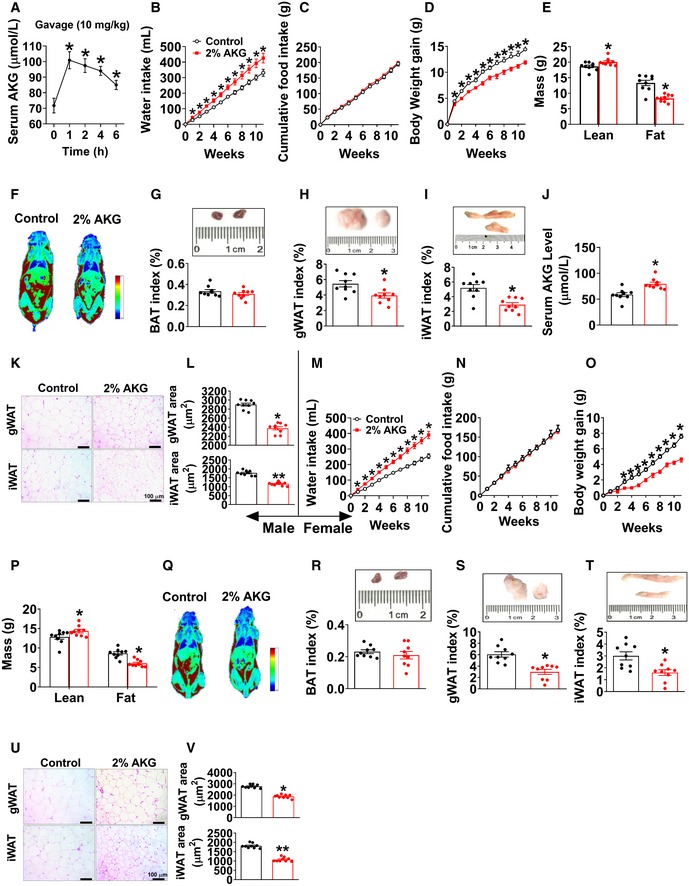-
A
Serum AKG concentration–time profile obtained from male C57BL/6 mice (10 weeks old) fed with normal chow before or after AKG gavage (10 mg/kg). The serum AKG level was tested at 0, 1, 2, 4, and 6 h after gavage (n = 8 per group).
-
B–D
Water intake (B), cumulative food intake (C), and body weight gain (D) of male C57BL/6 mice. At 12 weeks of age, mice were switched to HFD and received tap water or water supplemented with 2% AKG for 11 weeks (n = 9 per group).
-
E, F
Fat and lean mass (E) and representative images (F) of body composition from male mice after 11 weeks of AKG supplementation (n = 9 per group).
-
G–I
Weight index of BAT (G), gWAT (H), and iWAT (I) from male mice after 11 weeks of AKG supplementation (n = 9 per group).
-
J
Serum AKG level of male mice after 11 weeks of AKG supplementation (n = 9 per group).
-
K, L
Representative images (K) and quantification (L) of gWAT and iWAT HE staining from male mice after 11 weeks of AKG supplementation (n = 9 per group).
-
M–O
Water intake (M), cumulative food intake (N), and body weight gain (O) of female C57BL/6 mice. At 12 weeks of age, mice were switched to HFD and received tap water or water supplemented with 2% AKG for 11 weeks (n = 9 per group).
-
P, Q
Fat and lean mass index (P) and representative image (Q) of body composition from female mice after 11 weeks of AKG supplementation (n = 9 per group).
-
R–T
Weight index of BAT (R), gWAT (S), and iWAT (T) from female mice after 11 weeks of AKG supplementation (n = 9 per group).
-
U, V
Representative images (U) and quantification (V) of gWAT and iWAT HE staining from female mice after 11 weeks of AKG supplementation (n = 9 per group).
Data information: Results are presented as mean ± SEM. In (A), *
P ≤ 0.05 by non‐paired Student's
t‐test compared with before gavage. In (B–D and M–O), *
P ≤ 0.05 by two‐way ANOVA followed by post hoc Bonferroni tests. In (E, G–J, L, P, R–T and V), *
P ≤ 0.05 and **
P ≤ 0.01 by non‐paired Student's
t‐test.

